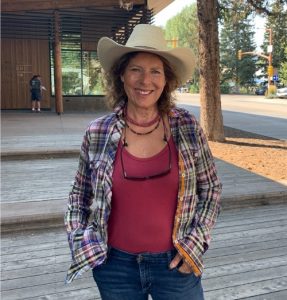
The title of Pamela Tanner Boll‘s new film, To Which We Belong, comes from a quotation by the author Aldo Leopold, early 20th conservationist and environmentalist whose work has inspired generations of ecologists, agrarians, and nature lovers. Leopold wrote, “We abuse land because we regard it as a commodity belonging to us. When we see land as a community to which we belong, we may begin to use it with love and respect.”
In the film Boll features nine agricultural projects in the US and abroad that are using regenerative techniques to restore soil, water, wildlife, families, and communities––and to bring about a paradigm shift from an extractive/industrial mindset to a more nature-based approach.
Timeline
0’43 how Pamela made the film
1’02 father’s family were farmers
1’53 common thread among farmers, ranchers, and aquaculturists
2’12 agriculture can be net carbon negative
2’24 agriculture creates a huge portion of annual emissions
3’10 Alejandro Carrillo’s ranch in northern Mexico
3’45 mimicking bison herds of old
4’38 holistic grazing and farming echo traditional methods for the Maasai 4’59 working in cooperation is new
5’19 working cooperatively made grass cover go from 20% to 70%
5’36 wildlife come back when there’s more grass
6’09 lawns
6’25 grasslands as some of the earth’s biggest carbon sinks
7’14 cropland and grassland can sequester more carbon than we emit
8’41 getting people to do regenerative agriculture — it’s not very hard
10’00 restoring grassland in northern Mexico created a microclimate
10’48 the shift in paradigm that if everyone does regenerative ag, we’re all better off
11’17 young people entering regenerative ranching in Mexico
13’09 making the most of water by using cover crops
14’37 Nebraska cover crops are a great business greencoverseed.com
14’55 cover crops make the plants healthier and therefore more resistant to pests
15’37 GreenWave
16’43 the many benefits of regenerative aquaculture
18’36 non-profit to learn how to do aquaculture
19’16 Oceans saturated
19’37 the Nature Conservancy working on ocean health
20’22 food production and conservation going hand in hand
20’45 Kenya Nature Conservancy project
21’22 small Kenyan farmers
21’40 Kenyan farmers upstream increasing the water supply in Nairobi
22’17 goal of getting 50% of farms to do cover cropping and no till agriculture in the US
23’25 most farms are family farms, though corporations have a huge influence
23’52 Cargill funding carbon markets for farmers so they can do regenerative agriculture
24’29 Harborview Farms
25’37 James Family Ranch
26’10 inspiring young people
28’31 Stone Barns
28’57 the name of the film com comes from Aldo Leopold
29’41 belonging to the land
30’34 belong to the land recognizes that we are stewards of the land
30’47 Katharine Hayhoe’s new book, Saving Us
32’27 working with nature is less work–if you change your attitude
32’45 you make changes when you’re broke…or broken
33’50 film website
34’39 how you can see the film



Subscribe:
Apple Podcasts
Spotify